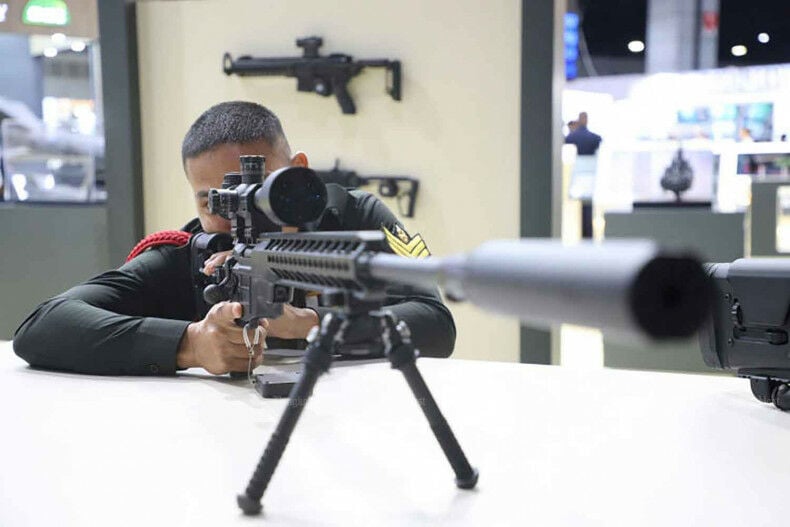Thailand to adopt offset policy for military procurements

Prime Minister Srettha Thavisin emphasised the necessity for the armed forces to adopt an offset policy when procuring weapons and military hardware. This policy aims to secure reciprocal benefits as a precondition for approving new procurement deals.
The Thai premier said the policy should include opportunities for Thailand to participate in the development of new defence technology from the country supplying the military hardware.
During a meeting yesterday with Marcus Wallenberg, president of Swedish bank Skandinaviska Enskilda Banken (SEB) and Saab AB, the Thai PM discussed the possibility of the Thai government purchasing 12 SAAB Gripen fighter jets.
PM Srettha conveyed the government’s offset policy to Wallenberg, expressing a desire to see the Swedish jet maker’s aircraft technology development based in Thailand. The 62 year old prime minister further elaborated on his vision for a new SAAB aircraft assembly factory, aircraft part manufacturer, or aircraft repair facility to be established in Thailand.
PM Srettha noted that Swedish companies under Wallenberg’s direction account for up to 40% of Sweden’s gross domestic product (GDP). He suggested that Thailand and Sweden hold a small forum on the sidelines of the next World Economic Forum in Davos, Switzerland, to facilitate deeper discussions with Swedish companies on technological cooperation in various fields.
The Bangkok-born PM indicated that he did not delve into the Royal Thai Air Force (RTAF)’s specific plans for procuring new fighter jets during the meeting as it is the Defence Ministry’s responsibility to determine the model and supplier of the new jets. He stated that the offset policy should apply even if the RTAF opts for US F-16 fighter jets instead.
Defence Minister
Meanwhile, Defence Minister Sutin Klungsang reported that the final decision on the Royal Thai Navy (RTN)’s long-overdue 13.5-billion-baht submarine procurement plan is pending a legal review. Sutin mentioned that the armed forces will convene later this week to form a joint working group tasked with implementing the government’s military hardware procurement package policy.
Sutin added that all armed forces leaders have agreed in principle on the new policy, which mandates that new military hardware procurement for all armed forces be decided collectively in one package, rather than separately as it has been done previously, reported Bangkok Post.
PM Srettha stated that the offset policy will ensure that Thailand gains significant benefits from these deals, including technological advancements and possible local manufacturing opportunities.
“This approach will not only modernise our armed forces but also contribute to the country’s industrial development.”
Latest Thailand News
Follow The Thaiger on Google News:


























